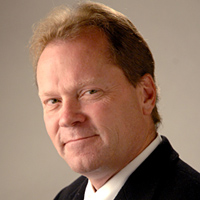The Greater Milwaukee Committee celebrated its 60th anniversary with a luncheon Monday at Northwestern Mutual Life Insurance Co.'s Downtown headquarters.
A major focus of the celebration was on the past successes of the business organization.
And to be sure, there were many.
The organization dug up a copy of the "This Week Magazine" published by The Milwaukee Journal on March 30, 1947. The cover story from that issue was headlined, "Fighting The Postwar Blues."
The article detailed how an organization called the "48 Corporation," which would be formed in 1948 and would later morph into the Greater Milwaukee Committee, was going to improve the city as a better place to live, work and play.
The organization outlined a six-point agenda to do just that:
- A "Master Metropolitan Plan."
- Construction of an outdoor stadium.
- Completion of the "Civic Center," including an indoors sports arena, a new public museum, modernization of the library and development of adequate parking areas.
- Completion of the War Memorial.
- A new "across-town expressway."
- A new zoo.
Remarkably, all six of those agenda items came to fruition, with the local business community driving an agenda that demanded some hefty public investments. County Stadium, the Arena, the War Memorial, the Milwaukee Public Museum, the freeway and the zoo all were built.
Back then, Milwaukee had the people; it just needed better infrastructure to be a competitive city in the 20th century.
"The GMC has changed with Milwaukee over the years," said Julia Taylor, president of the GMC. "During its first five decades, the primary focus was on bricks and mortar projects that helped create an infrastructure of arts, entertainment, sports, culture and transportation improvements for the community. More recently, the focus has been on regional economic development, workforce training, minority business growth, employment diversity, regional transit and other, more complex social issues."
Indeed, the bricks and mortar stuff was easy to measure. You could reach out and touch it.
Today, many of the GMC's missions are less tangible, but they are no less real. And they are no less daunting.
Taylor and Edward Zore, president and chief executive officer of Northwestern Mutual and current chairman of the GMC, outlined a host of recent achievements for the organization, including:
- The launching of the Milwaukee 7 regional marketing plan (including the www.choosemilwaukee.com Web site and the Milwaukee 7 Resource Center at the We Energies headquarters).
- The creation of the Regional Workforce Alliance.
- The completion of an economic impact study for the Kenosha-Racine-Milwaukee commuter rail system.
- The establishment of the Water Council to leverage the Milwaukee region's existing concentration of water-related companies and academic research facilities into a more powerful economic force.
- The launching of the Well City Initiative.
- The recruitment of more diverse members for the GMC board.
- The raising of almost $500,000 for a Milwaukee Public Schools Strategic Plan.
As you can see, most of these new initiatives are works in progress. Most cannot be measured by bricks or mortar.
Truth be told, many of the challenges the GMC is attempting to tackle today, such as regional workforce development and education, are even tougher to conquer than merely constructing brick walls. Furthermore, measuring the progress of such noble initiatives also is more complex, even murky.
But they are no less important. In the 20th century, the American people decided to invest in the public resources necessary to build a national freeway system, to build bridges, to build airports, to build phone lines, to build power plants, to build electrical systems, to build sewer systems, to build water treatment plants, to build commuter rail lines, to build schools.
Going forward, it is unrealistic to think the business community (including the GMC) can fix all of Milwaukee's problems alone. The greater question is, does the business community and our society as a whole have the political will and courage to make the same kinds of public investments -- and sacrifices -- to meet the challenges of global competition in the 21st century?
Steve Jagler is executive editor of BizTimes in Milwaukee and is past president of the Milwaukee Press Club. BizTimes provides news and operational insight for the owners and managers of privately held companies throughout southeastern Wisconsin.
Steve has won several journalism awards as a reporter, a columnist and an editor. He is a graduate of the University of Wisconsin-Milwaukee.
When he is not pursuing the news, Steve enjoys spending time with his wife, Kristi, and their two sons, Justin and James. Steve can be reached at steve.jagler@biztimes.com.


